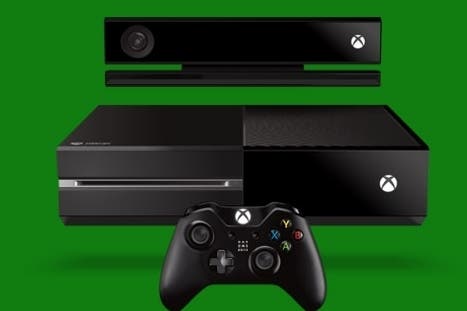Microsoft moves to calm fear over Xbox One advertising
UPDATE: "Will not target ads to you based on any data Kinect collects unless you choose to allow us to do so."
UPDATE 2: A Microsoft spokesperson issued Eurogamer the following statement, telling gamers: "Will not target ads to you based on any data Kinect collects unless you choose to allow us to do so."
UPDATE 1: Microsoft has questioned the accuracy of the Advertising Age report that sparked concern about how Xbox One would handle user data.
Over the weekend AdAge published a report based on a speech from Yusuf Mehdi, corporate VP marketing and strategy for Microsoft, delivered at the Association of National Advertisers Masters of Marketing Conference in Phoenix, Arizona, titled, "Xbox One's Data Treasure Trove Could Reshape Marketing." The report suggested Microsoft could use the likes of Kinect and Xbox One's online functionality to help marketers create more effective advertising placed within the console's dashboard.
Overnight Microsoft denied the report. Spokesperson Larry "Major Nelson" Hryb tweeted: "We are seeking a correction to the AdAge story that quotes Yusuf," before pointing to an AllThingsD report that sought to clarify the matter.
AdAge quoted Mehdi as discussing how Xbox One would bridge offline and online worlds as follows: “It's early days, but we're starting to put that together in more of a unifying way, and hopefully at some point we can start to offer that to advertisers broadly.”
Microsoft said this quote was in reference to the way content can be carried over from Xbox One to other platforms, such as SmartGlass. “For example, just as Xbox SmartGlass allows companion mobile experiences that are synchronous to what is being watched on TV, advertisers could create new experiences unifying their content across devices,” Microsoft told AllThingsD. “The quote from Yusuf in AdAge is not in relation to Kinect.”
Major Nelson concluded: "Tl;dr We do not collect information to share or sell. You are fully in control of your personal data. Your privacy is important to us."
ORIGINAL STORY: Microsoft has addressed concern over advertising on Xbox One.
Prospective Xbox One owners have worried about Microsoft's plan for user data since the console was announced back in May, but over the weekend a new article heightened the situation.
On 5th October trade publication Advertising Age published a report based on a speech from Yusuf Mehdi, corporate VP marketing and strategy for Microsoft, delivered at the Association of National Advertisers Masters of Marketing Conference in Phoenix, Arizona.
AdAge's report, titled, "Xbox One's Data Treasure Trove Could Reshape Marketing," suggests Microsoft could use the likes of Kinect and Xbox One's online functionality to help marketers create more effective advertising placed within the console's dashboard.
The article discusses the potential for Xbox One to make user data available for market research, something it says Mehdi "only hinted at" in his talk.
"We are trying to bridge some of the world between online and offline," Mehdi said.
"That's a little bit of a holy grail in terms of how you understand the consumer in that 360 degrees of their life. We have a pretty unique position at Microsoft because of what we do with digital, as well as more and more with television because of Xbox. It's early days, but we're starting to put that together in more of a unifying way, and hopefully at some point we can start to offer that to advertisers broadly."
One unnamed marketer told AdAge Microsoft could use Xbox One and Kinect to deliver "unprecedented information about how people engage with TV advertising".
When Xbox One was announced Microsoft planned for it to authenticate online once every 24 hours and require Kinect be plugged in to work. Following a backlash it ditched this plan.
But that hasn't stopped many from expressing concern at how Xbox One will handle their data, particularly in the context of the ongoing PRISM scandal and Microsoft's involvement with it.
In an interview with Eurogamer conducted at Microsoft's Redmond Xbox One reveal event in May, Europe chief Phil Harrison denied the company planned to use Kinect to snoop on gamers.
"Microsoft has very, very good policies around privacy," he said. "We're a leader in the world of privacy, I think you'll find. We take it very seriously. We aren't using Kinect to snoop on anybody at all. We listen for the word 'Xbox on' and then switch on the machine, but we don't transmit personal data in any way, shape or form that could be personally identifiable to you, unless you explicitly opt into that."
During his talk, Mehdi discussed how the new and improved Kinect can "distinguish up to six voices in a room, respond to voice commands, read skeletal movement, muscle force, whether people are looking at or away from the TV and even their heart rates", according to AdAge.
Eurogamer contacted Microsoft this morning about the AdAge report. The company declined to offer a spokesperson for an interview, but did point us to a post made this month by director of product planning Albert Penello on NeoGAF in response to a user question about Natural User Interface Advertisements (NuAds).
Penello's statement is reproduced below:




.png?width=291&height=164&fit=crop&quality=80&format=jpg&auto=webp)




